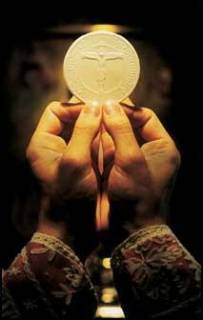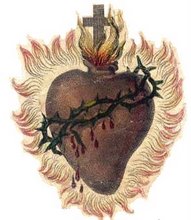The Work of Pius XII
I have a very strong devotion to Pius XII, and being a student of history, I have focused a great deal on the history of his papacy and his actions during World War II. Attacks on Pius have always bothered me tremendously, because it doesn't take a whole lot to see through them. The attacks originally were perpetrated by the Communist government of the USSR, who wanted to discredit the papacy for its own, obvious reasons.
Those who attack him now, Catholics included, usually fall into one of three groups. The first group has no use for the papacy and want to see it destroyed. They believe that an attack on the Pope discredits the office and take every opportunity that can be found to do this. The second group is comprised of liberal secularists who want to re-write history and find this a convenient place to do so as they believe it helps to of discredit the moral authority of the Church, which stands in the way of western secularism. The third group are those of no ill will, who hear the attacks in the western media and believe, as did Virginia about Santa Claus, that "if you see it in the Sun (newspaper), it's so."
A cursory look at the history of the time and situation speaks the truth. Below are a couple of quotes that speak volumes. This first quote is from Albert Einstein:
Being a lover of freedom, when the Nazi revolution came in Germany, I looked to the universities to defend it, knowing that they had always boasted of their devotion to the cause of truth; but, no, the universities immediately were silenced. Then I looked to the great editors of the newspapers, whose flaming editorials in days gone by had proclaimed their love of freedom: but they, like the universities, were silenced in a few short weeks. Only the Catholic Church stood squarely across the path of Hitler's campaign for suppressing the truth. I never had any special interest in the Church before, but now I feel a great affection and admiration because the Church alone has had the courage and persistence to stand for intellectual truth and moral freedom. I am forced thus to confess that what I once despised, I now praise unreservedly.
Rabbi Isaac Herzog, the Chief Rabbi of Israel, sent this to the Vatican in 1945:
The people of Israel," wrote Rabbi Herzog, "will never forget what His Holiness and his illustrious delegates, inspired by the eternal principles of religion, which form the foundation of true civilization, are doing for our unfortunate brothers and sisters in the most tragic hour of our history, which is living proof of Divine Providence in this world.
Golda Meir, Israel's Foreign Minister at the time, spoke of Pius on the occasion of his death in 1958:
We share in the grief of humanity…When fearful martyrdom came to our people in the decade of Nazi terror, the voice of the Pope was raised for the victims. The life of our times was enriched by a voice speaking out on the great moral truths above the tumult of daily conflict. We mourn a great servant of peace.
Some would say, and have said, that these quotes (a small portion of the extraordinary number of testimonies) don't really prove that the Pope Pius actually knew what his priests and religious were doing during the war. They may have been acting without his expressed consent. However, new research and testimonies prove otherwise, which is the point of this blog. Did the Pope do enough? I don't know, and truly no one can. This is not the question, though. The question is what did he do? I believe that the answer to that is 'an extraordinary amount' for which he was lauded and praised for extensively.
Below is a story from the Zenit, a great Catholic news agency about Pius' involvement.
God love you!
************
Corroborate Cardinal Bertone's Citation of '43 Letter
ROME, APRIL 25, 2007 (Zenit.org).- Many past testimonies support Cardinal Tarcisio Bertone's announcement that Pope Pius XII signed a letter in 1943 asking religious institutes to open their doors to persecuted Jews.
That wartime letter undercuts the theory that bishops, religious and many Catholics who risked their lives to save Jews from extermination did so without the Pope's knowledge.
Even before Vatican Secretary of State Cardinal Bertone's statement, many testimonies had been published corroborating the information.
According to these testimonies, some of which ZENIT is summarizing here, the assistance project organized by the Catholic Church to save persecuted Jews was directly ordered by Pius XII.
Get organized
Monsignor Aldo Brunacci, the canon of Assisi, said in various interviews that "on the third Thursday of September 1943, after the usual monthly reunion of the clergy that had taken up residence in the diocesan seminary, the bishop called me aside to the room in front of the chapel and showed me a letter from the secretary of state and told me: 'We must get organized to come to the aid of all the persecuted people and especially the Jews. This is the will of the Holy Father Pius XII. This all must be done with the greatest caution and prudence. Nobody, not even the priests, must know about this.'"
Monsignor Brunacci added that he saw the letter sent by the Vatican Secretariat of State.
The monsignor and Bishop Giuseppe Placido Nicolini of Assisi were recognized as "Righteous Among the Nations" by the Yad Vashem, Israel's official memorial to Holocaust victims.
Available for you
The testimony of Emilio Viterbi of the University of Padua, a Jewish refugee in Assisi, was released on Jan. 6, 1947. It confirms Pius XII's involvement in the rescue of Jews by religious institutes.
In the 1990s, on the occasion of Bishop Nicolini's 70th birthday, Viterbi said that many episodes "could be mentioned to illustrate the tireless and holy humanitarian actions that the Assisi clergy did for the persecuted Jews under the noble guidance of Bishop Placido Nicolini, who with the greatest love and highest zeal had thus followed the philanthropic will of the Holy Father."
Viterbi added: "During the last period of German occupation, his diocese had become an asylum for many refugees and persecuted persons. Nonetheless when I went to him to ask him, in a case of extreme need, if they could welcome me with my family, he -- with great simplicity and a loving smile -- answered: 'Only my bedroom and my study are free, however, I can sleep in the latter. The bedroom is available for you.'"
The dear refugees A similar story is told by Sister Ferdinanda Corsetti of the Institute of the Sisters of St. Joseph of Chambéry in Rome. The religious revealed that "it was the Holy Father, Pius XII, who ordered us to open our doors to all the persecuted. If we hadn't received the order from the Pope, it would have been impossible to save so many people."
On March 17, 1998, Sister Ferdinanda was recognized as Righteous Among the Nations by the Israeli Embassy in Rome, for having contributed in saving so many Jews during the Nazi occupation of Rome.
On that occasion, to confirm Pius XII's intentions, Sister Ferdinanda displayed a letter from the Vatican secretary of state, Cardinal Luigi Maglione, sent to the Mother Superior on Jan. 17, 1944.
In the letter, the secretary of state, on behalf of Pius XII and in reference to the many Jews hidden at the institute, wrote that he wished for "these chosen sons and daughters such ineffable recompense from divine mercy, so that, shortening the days of such great suffering, the Lord may grant them a serene, tranquil and prosperous future."
The letter continued: "In the meantime, as a particular sign of benevolence, His Holiness, grateful to those beloved sisters of St. Joseph of Chambéry for the work of mercy they do with such Christian understanding, sends them and the dear refugees the comforting apostolic blessing."
Direct contact
Sister Maria Piromalli, of the Institute Pius X in Rome, told how the Vatican secretary of state was in direct contact with the convents hiding the Jews.
Her institute, managed by the Daughters of St. Mary of Providence, hid 44 Jewish men and women.
Sister Maria recalled that Pius XII "sent an appeal to all the religious institutes in Rome to help the Jews" and added that Don Emilio Rossi alerted her institute. In the Vatican secret archives published in 2004 -- "Inter Arma Caritas. The Vatican Information Office on Prisoners of War, Instituted by Pius XII (1939-1947)" -- Don Emilio Rossi is listed as the secretary of the Information Office for Prisoners of War, under the Secretariat of State, that is, the office that dealt with matters related to helping the Jews.



No comments:
Post a Comment